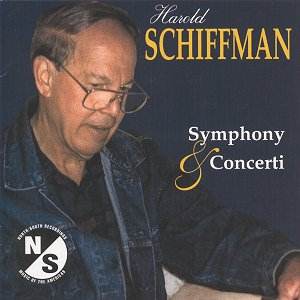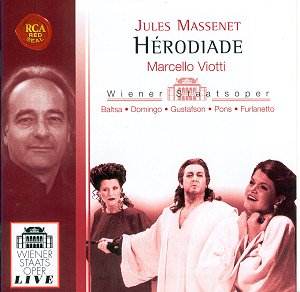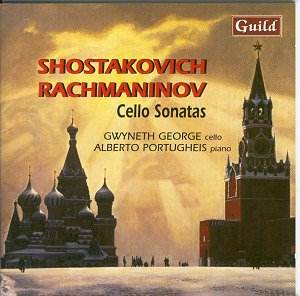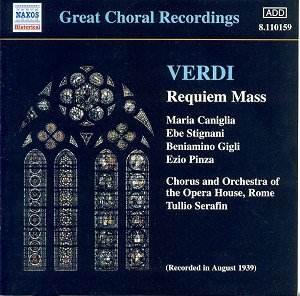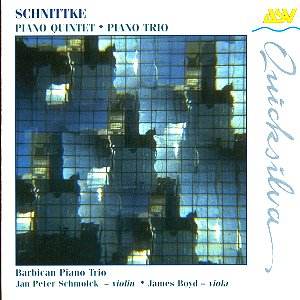 Composer: Alfred Schnittke
Composer: Alfred Schnittke
Works: Piano Trio, Piano Quintet
Performers: Barbican Piano Trio – Jan Peter Schmolck (violin), James Boyd (viola)
Recording: Recorded 6 August (Trio), 23 November (Quintet), St George’s, Brandon Hill, Bristol
Label: ASV Quicksilva CD QS 6251 [57.05]
Alfred Schnittke, a titan of contemporary music, is recognized for his ability to traverse contrasting musical landscapes, merging disparate styles with a deftness that is both profound and unsettling. His Piano Trio, arranged in 1992 from a string trio originally composed in 1985, reflects a tumultuous period in the composer’s life marked by health challenges yet also a deepening artistic exploration. The Piano Quintet, written during the mid-1970s, stands as a testament to Schnittke’s evolving language, encapsulating a spectrum of emotions that resonate with listeners while challenging their perceptions of traditional chamber music.
The Barbican Piano Trio, featuring the accomplished Jan Peter Schmolck on violin and James Boyd on viola, delivers an interpretation of the Piano Trio that is both sensitive and incisive. The two movements present a rich tapestry of emotions, with the performers navigating the slow tempi with a careful balance between restraint and expressiveness. The stark contrasts inherent in Schnittke’s writing are vividly brought to life by the trio, particularly in the first movement’s haunting lyricism juxtaposed against moments of dissonance. Their attention to detail, such as the subtle dynamic shifts and nuances in phrasing, creates an intimate dialogue that honors Schnittke’s intent while engaging the listener on a personal level.
The recording quality merits special mention, as the acoustic of St George’s, Brandon Hill enhances the clarity and warmth of the ensemble’s sound. The engineering captures the intricate interplay between the instruments, allowing the listener to appreciate the textural complexities of Schnittke’s writing. For instance, in the second movement, the piano’s percussive elements are counterbalanced beautifully by the strings, creating a soundscape that is both stark and lush. The engineering supports this dynamic range, ensuring that the quieter passages maintain their poignancy without losing clarity.
The Piano Quintet, regarded by many as one of Schnittke’s masterpieces, is equally compelling in this performance. The Barbican Trio’s approach is marked by a keen awareness of the work’s emotional depth. Their playing is alert and responsive, revealing the quintet’s architecture through a careful delineation of each section’s character. The quiet, introspective moments are rendered with exquisite care, while the outbursts of passion are delivered with controlled intensity. The absence of over-indulgence or excessive sonority in the interpretation reflects Schnittke’s own restraint, allowing the music’s inherent emotional gravity to shine through. The interplay between the piano and strings in the climactic passages is particularly noteworthy, showcasing the performers’ ability to create tension and release with palpable ease.
Comparisons to other recordings of both works reveal the Barbican Trio’s thoughtful choices. Their interpretation stands out not only for its technical precision but also for its emotional intelligence. While some recordings may opt for a more overtly dramatic approach, the Barbican’s nuanced reading invites listeners to engage with Schnittke’s subtleties, emphasizing the deeply personal nature of the music.
This recording of Schnittke’s Piano Trio and Quintet emerges as a significant contribution to the repertoire, showcasing both the composer’s innovative spirit and the performers’ extraordinary interpretative skills. The Barbican Trio’s thoughtful and well-prepared performance, combined with the high quality of the recording, elevates this disc to a position of prominence among contemporary chamber music recordings. It is a compelling listening experience that underscores Schnittke’s unique voice in the classical canon, making a strong case for the enduring relevance of his work today.
